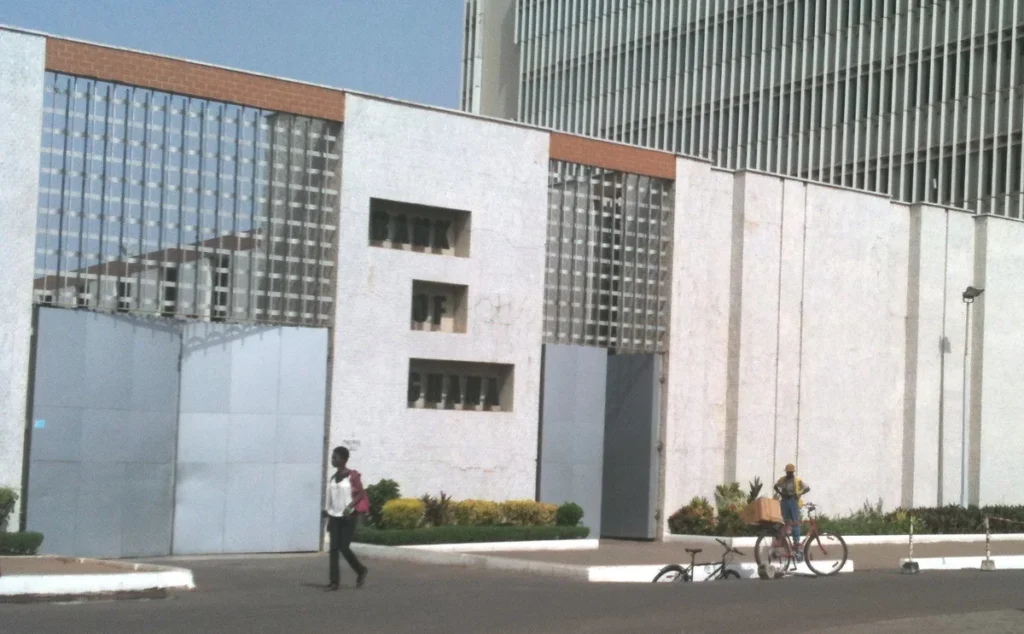Bank of Ghana Maintains Policy Rate Amid Mixed Inflation Trends and Economic Optimism
Publisher November 29, 2024 0
The Monetary Policy Committee (MPC) of the Bank of Ghana has decided to keep its key policy rate unchanged at 27 percent, signaling a cautious approach as the country continues to navigate a phase of economic recovery while also grappling with inflationary pressures. This decision reflects the delicate balancing act the central bank faces in ensuring economic growth while managing the risks of rising inflation.
The policy rate is the main tool used by the Bank of Ghana to influence the economy and control inflation. It serves as the benchmark interest rate for loans and deposits across the country, affecting both business and consumer borrowing costs. A higher policy rate generally seeks to reduce inflation by making credit more expensive and thus slowing economic activity, while a lower rate encourages borrowing and stimulates economic growth.
Economic Growth Shows Resilience
The Ghanaian economy has shown notable signs of resilience, supported by strong performance in key sectors. The real Composite Index of Economic Activity (CIEA) recorded a 2.2 percent growth in September 2024, reversing a 0.4 percent contraction in the same period last year. This positive performance is attributed to an uptick in activities such as port operations, construction projects, and consumer demand. Additionally, business confidence has improved, as reflected in October’s Purchasing Managers’ Index (PMI), which exceeded the 50-point mark, indicating expanding economic activity.
Despite facing numerous challenges, the economy has managed to maintain its growth trajectory, driven by both domestic recovery and external factors, such as favorable global commodity prices. The steady improvement in key indicators suggests that the country is on the path to continued recovery, even though inflation remains a significant challenge.
Inflationary Pressures Persist
Inflation has been a persistent issue in Ghana’s economy, continuing to rise despite efforts to control it. The inflation rate for October 2024 hit 22.1 percent, up from 20.4 percent in August. The increase is primarily attributed to higher food prices and the effects of currency depreciation, which have led to costlier imports and passed-through inflation. Despite this, the country has seen a decline in core inflation, which excludes volatile items like food and energy. This decrease suggests that monetary policy interventions have had some positive impact in curbing the underlying inflationary pressures.
However, the Bank of Ghana has revised its inflation expectations. Initially targeting inflation in the range of 6-10 percent by mid-2025, the central bank now anticipates this goal will be reached by the fourth quarter of 2025, due to ongoing inflationary challenges. This delay in meeting inflation targets underscores the complexity of managing inflation in the face of external shocks, such as fluctuating global commodity prices and exchange rate volatility.
Strengthening of the Currency and External Sector Performance
On a more positive note, the Ghanaian cedi has strengthened in recent months, offering some relief from the inflationary pressures. The cedi appreciated by 6 percent against the U.S. dollar in November 2024, marking a notable recovery from previous losses. This is largely due to increased foreign exchange sales and an improvement in the country’s foreign reserves.
In addition, Ghana’s external sector has shown significant improvement. For the first nine months of 2024, Ghana posted a current account surplus of $2.2 billion, which was supported by increased exports of gold and oil, as well as higher remittance inflows. Foreign reserves have risen to $7.92 billion, providing a 3.5-month import cover. These positive developments in the external sector, along with the continued support from international financial institutions, provide a solid foundation for further economic stability.
Moreover, Ghana’s engagement with the International Monetary Fund (IMF) under the Extended Credit Facility (ECF) remains on track. The country is set to receive an additional $360 million from the IMF in December 2024, following a positive review by the IMF board. This injection of funds is expected to further stabilize Ghana’s macroeconomic environment, providing much-needed financial support to meet the country’s fiscal and monetary objectives.
Outlook for the Economy
The Bank of Ghana remains committed to maintaining economic stability. The continued strength of the cedi, coupled with ongoing monetary and fiscal policies, is expected to gradually align inflation with the central bank’s targets in the coming years. As the country works through the challenges of inflation and economic recovery, the Bank of Ghana’s cautious policy stance will continue to play a critical role in managing the balance between growth and inflation.
The MPC is scheduled to reconvene in January 2025 to assess the latest economic developments and determine the next steps in its policy approach. With inflation still a key concern, the Bank of Ghana will likely continue to monitor the situation closely, adjusting its policy as needed to ensure the economy remains on a stable path.







